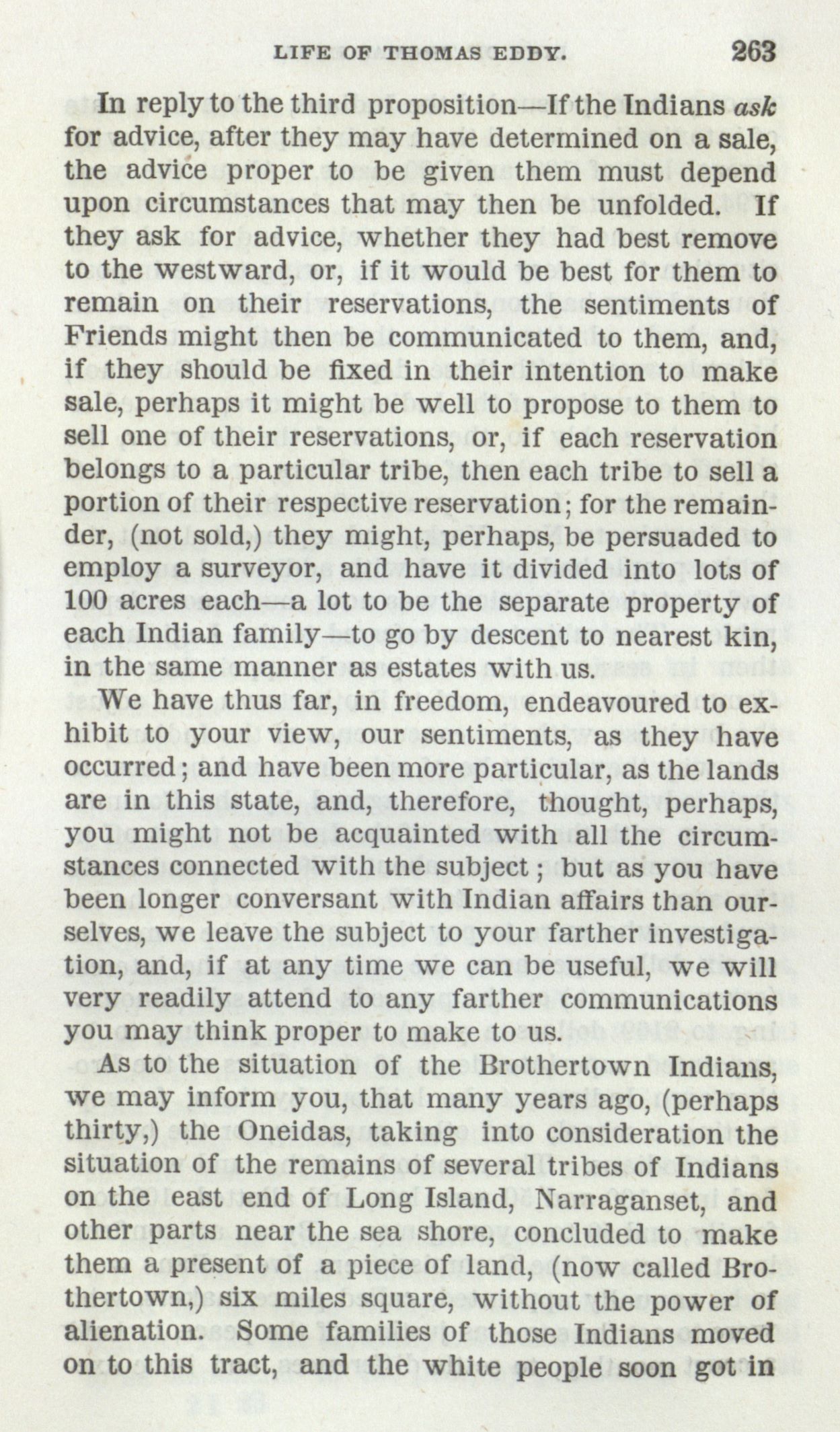In reply to the third proposition—If the Indians ask
for advice, after they may have determined on a
sale,
the advice proper to be given them must depend
upon
circumstances that may then be unfolded. If
they ask for advice,
whether they had best remove
to the westward, or, if it would be
best for them to
remain on their reservations, the sentiments
of
Friends might then be communicated to them, and,
if they
should be fixed in their intention to make
sale, perhaps it might be
well to propose to them to
sell one of their reservations, or, if
each reservation
belongs to a particular tribe, then each tribe to
sell a
portion of their respective reservation; for the
remain-
der, (not sold,) they might, perhaps, be persuaded
to
employ a surveyor, and have it divided into lots of
100 acres
each—a lot to be the separate property of
each Indian family—to go
by descent to nearest kin,
in the same manner as estates with
us.
We have thus far, in freedom, endeavoured to ex-
hibit to your view,
our sentiments, as they have
occurred; and have been more
particular, as the lands
are in this state, and, therefore, thought,
perhaps,
you might not be acquainted with all the
circum-
stances connected with the subject; but as you have
been longer conversant with Indian affairs than our-
selves, we
leave the subject to your farther investiga-
tion, and, if at any
time we can be useful, we will
very readily attend to any farther
communications
you may think proper to make to us.
As to the situation of the Brothertown Indians
we may inform you, that many years ago, (perhaps
thirty,) the Oneidas
situation of the remains of several tribes of Indians
on the east end of Long Island
other parts near the sea shore, concluded to make
them a present of a piece of land, (now called Bro-
thertown
alienation. Some families of those Indians moved
on to this tract, and the white people soon got in

